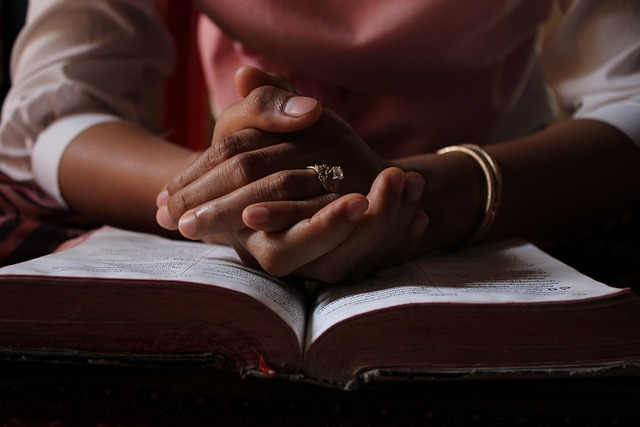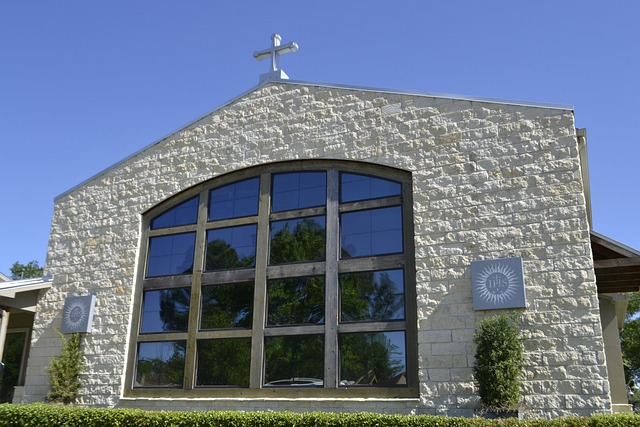What Is A Non-Denominational Church: Understanding Non-Denominational Churches: A Biblical Approach To Non-Denominational Beliefs | Kingdom Blueprint
Mar 07, 2024
We’re about to take a deeper look into a spiritual path that’s not so much a leap of faith as it is a step towards unadulterated religious expression. In a world where institutions and labels often shape our identities and social systems, the non-denominational church stands as an intriguing, independent entity.
This exploration aims to demystify the non-denominational church movement, shedding light on its biblical underpinnings and communal spirit, offering an olive branch to the convoluted landscape of modern faith with non-denominational beliefs.
The essence of Christian faith at a nondenominational church near you, where the focus is purely on the teachings of Jesus Christ and following the guidance of the Holy Spirit. Unlike many denominational churches, non-denominational churches offer an inclusive atmosphere free from the constraints of a specific Christian denomination. In this post we will answer, what does the bible say about non-denominational churches in detail.
Many non-denominational churches established that there would be more than different denominations coming together to celebrate God. Non-denominational churches separated themselves from mainline churches by answering a simple question that can harm a Christian church and the biblical principles that many Christian churches or church elders lost sight of, showing the love of Jesus Christ first.
What Is A Non-Denominational Church?

Non-denominational Christian churches embody the heart of Christian worship without the denominational doctrine, offering followers of Christ a unified space to explore the deeper meaning of biblical teachings, and to connect on a spiritual level with other believers. Predominantly, the core beliefs of these churches are grounded in the Holy Bible, and the ultimate authority rests in the word of God.
Within the diverse group of non-denominational churches, many have seen significant growth in younger generations due to their modern forms of worship and community outreach. Each church, whether it's part of the renowned Gateway church or the Hillsong church, operates under its own organizational structure and leadership structures, guided by church leaders and elders.
Non-denominational churches focus and prioritize the central teachings of the Christian faith and the biblical basics while embracing diverse perspectives within their flock. They continue the missionary journeys started during the earthly incarnation of Christ and embody the spirit of the first missionary journeys. Non-episcopal protestant churches that are under the same leadership, work as the Christian church always functioned, except nondenominational churches stray away from the same traditions church by church.
This flexibility and focus on the foundational beliefs of Christianity and community outreach make non-denominational churches the right church for individuals seeking to explore their faith outside the boundaries of traditional denominations. So what do non-denominational Christians believe?
It's not about being better than denominational counterparts, but about providing a space where individuals can delve into their spiritual issues unconstrained by certain traditions or larger denominations.
According to the Pew Research Center, the number of nondenominational churches and non-denominational Christians is growing significantly, proving that the engaging, welcoming environment of these mainline churches is resonating with believers worldwide.
Therefore, whether you are a follower of a specific religious denomination looking to explore different denominations, or are new to the Christian faith, a nondenominational church offers an open and welcoming environment where God's word is the guiding light.
The Nitty Gritty of Non-Denominational Foundations

Picture this—moss-covered stones whispering tales of ancient faith, where a church isn't just a building, but a concept etched in the human heart. The non-denominational church, in essence, is a reclamation of that purity, distilling the collective wisdom written in scrolls into a community built on biblical literalism, personal experience, and the direct encounter with the divine.
Christian denominations as a whole including protestant denominations and interdenominational churches left an interesting space for church leaders and church structures. A church structure by the foundation is made up of denominational affiliation. Leaving little to no room for change or evolution even in interdenominational churches the denominational structure was dominating the ability of many churches or Christian groups to grow. Established denominations and individual pastors from a particular denomination dominated the heart of the everyday Christian.
An Odyssean Journey to Independence
The story begins with a quest for authenticity often sparked by the limitations and politics of organized religion. Amidst the tumult of reform and revival movements, some faithful souls sought a less bureaucratic, personal connection with God. These spiritual mavericks weren’t iconoclasts; they simply embraced a faith that wasn’t mediated by the stained-glass filters of traditional denominations.
Questions like: What's a non-denominational church or Are non-denominational churches cults? Bring about the non-dominant church or non-congregational thought process. Cult leaders will manipulate everyone from family members to friends for a sense of "nondemotional" control. They are interested in control over acceptance and religion over relationships. A non-denominational church, Santa Rosa Christian Church, for example, has the opposite interest, they are looking to accept through biblical application.
Denominational differences led to denominational prejudice which led to denominational schools and Christ came to make us one denomination. There was never a higher or lower sect, beliefs, or practices. He treated us all as examples to point to the same page. Even recently the course and form of love that Christians in the New Testament all wanted. Looking at the definition of non denominational church is similar to a non denominal church and different than the non-denominational evangelical church.
Living Scripture, Unfiltered Faith
For non-denominational Christians, the Bible isn't just a source of inspiration; it’s the blueprint for belief, worship, and community. Services are stripped down, sans elaborate liturgical embellishments, to allow for a raw encounter with the text. The ethos is clear—every individual is a priest, and every heart a pulpit, allowing God's unfiltered truth to resonate. The word denomination should be changed to division because that is what it causes.
What Does The Bible Say About Non-Denominational Churches?

The local church or the Roman Catholic church will have its core Christian doctrines with denominational backgrounds to consider. However, does the word of God address denominational churches vs. non-denominational churches? Here are five points to consider about the above question:
-
The Bible emphasizes unity among believers, not division based on denominational labels.
-
Jesus spoke against religious hypocrisy and emphasized the importance of a personal relationship with God over following strict doctrines.
-
The early church in Acts was non-denominational, united by their faith in Christ rather than denominational differences.
-
The New Testament doesn't mention denominations, but rather encourages believers to come together as one body in Christ.
-
The Bible teaches that our ultimate authority should be the word of God, not man-made traditions or denominational doctrines.
In the end, it's not about being part of a specific denomination, but rather about following Christ and living out His teachings in our daily lives. A non-denominational church provides an open and inclusive space for believers to do just that, without the constraints of denominational labels or traditions.
Bible Verses To Reference What Does The Bible About Non-Denominational Churches
-
Ephesians 4:3 - "Make every effort to keep the unity of the Spirit through the bond of peace."
-
Matthew 23:8 - "But you are not to be called 'Rabbi', for you have one Teacher, and you are all brothers."
-
Acts 4:32 - "All the believers were one in heart and mind."
-
1 Corinthians 12:27 - "Now you are the body of Christ, and each one of you is a part of it."
-
2 Timothy 3:16-17 - "All Scripture is God-breathed and is useful for teaching, rebuking, correcting and training in righteousness, so that the servant of God may be thoroughly equipped for every good work."
As we can see, the Bible emphasizes unity among believers and the importance of following God's word above all else. So while denominations may have their place in the church narrative, it is ultimately our faith in Christ and living out His teachings that truly matters. Let us embrace a non-denominational approach to our faith journey and come together as one body in Christ.
Side-By-Side with Sacred Texts

If a non-denominational church were a gallery of faith, its walls would be lined with scriptural art, each piece illuminated by the nimbus of divine context. The Christian doctrine is not made for doctrinal differences or a specific denomination or larger organization to ruin a restoration movement. The Stone Campbell restoration movement could have never really happened under a larger denomination because one church thinks one way.
My interest in denominational church behavior had peaked and I started doing searches like non-denominational Christian churches near me because "Church hurt" made me want acceptance and nondenominational churches seemed like a good choice. Christian non-denominational churches near me worked out when a church near me non-denominational men's group had a 3-day men's retreat.
Immediately, I noticed their non-denominational beliefs during worship opened up 5 questions for me:
What does non-denominational Christian mean to me?
I thought it was a place where all the sinners went when they were removed from other denominations.
What is it like to be apart of a non-denominational Christian church?
I thought that I had to agree that other churches did not want me in their congregation. (laughable but true.)
What is denominational anyway?
I thought it was like being in a country club full of like-minded people. I thought that denominational meant loyalty to the same causes.
Why is the denomination church meaning never explained?
I thought that if people knew what a denomination church meant that they would move away and not come closer to it.
Who says that a non-denominational Christian meaning has to good or bad?
I thought that church was good or bad. The sermons were spot-on or far off.
My answers were mostly just thoughts in my head from old traumas (church hurt). I answered all of these questions so I asked the pastor when I found the non-denominational Christian church near me, how long are church services because I wanted to take notes and compare what I thought to what happened.
Word-for-Word Worship
One wall would showcase the focus on text-driven sermons, with speakers drawing interpretations and applications line by line, chapter by chapter, verse by verse. The intent is to uphold the integrity of the Word and to allow it to reflect the contemporary as much as the ancient.
I looked for a church finder for local churches because ministry seemed to have a purpose. I looked for a nondenominational church near me and the search results found a congregation full of hope, believed in the marriage covenant, had plenty of opportunity to serve, and most important was all based on the gospel. Their location was close enough for me to join.
A Corner for Contemporary Context
Another section might spotlight the hermeneutics of context and culture, recognizing that faith isn't a sepia-toned relic but a living testimony. Here, the scriptures shed their echo-chamber qualities and resonate with the here and now. Church denominations always had church leadership and church members who made church life seem out of place. A Presbyterian church made me feel like other denominational churches may make you feel, undecided.
Community, Christ, and Communion

The non-denominational church isn't a solitary quest but a communal one, a fellowship crafted with a tapestry of diverse threads yet woven into a unity.
Inclusivity at its Core
This community would emphasize the unity of believers beyond the walls of denominational separation. Each member is recognized for their unique story and struggle, creating a mosaic of shared humanity. Non-denominational means that we do not argue over a specific denomination or who is right or wrong.
Service as Sacrament
City streets paved with intent, this section beams with the outreach programs, the missionary work, and the charity initiatives that represent the living out of Christ’s commandments. Most forms of non denominational religion have service as a must to selfishness.
The Beautiful Challenge of Non-Denominational Living

It’s not all serenity under the steeple, though. Navigating the waves of independence has its challenges, not the least of which are the self-imposed responsibilities to interpret the scriptural truths faithfully and the push for the core beliefs not to dissipate into mere personal preferences.
Charting Unfamiliar Territories
Here, we'd examine the struggles with dogma and doctrine when there is no central authority to provide an established interpretation. Congregations are faced with the daunting blank pages of religious tradition.
The Responsibility of Freedom
Convincing that personal expression is not just a byproduct of worship but its very essence, the non-denominational church sails uncharted spiritual waters, each member a navigator, each decision a reflection of their encounter with the divine.
Mythbusting and Meaning-Making

Non-denominational churches often face a narrative defined by what they aren’t rather than by what they are—here, we’d dismantle some common misconceptions and reinforce the idea that non-denom isn't an exit from the Christian narrative but an alternative entrance, a fork in the road that still leads to the same destination.
The Dungeon of Denominational Dictionaries
Words have power, and labels hold captivity. Non-denominational communities don’t fit neatly into catechisms or thesauruses. They are an evolving poem, not a rigid dogmatic contract. The prayer difference in denominational churches near me, non-denominational churches seem to pray differently for even one person they press and review details. I felt like I had to navigate decisions and find an area, guide, metric of time, or home jump left to AZ to feel right.
The Joy Among Jungles of Misunderstanding
Exploring the depth that independent doesn’t mean isolated—these churches are often pioneering in their abilities to adapt and resonate among the rainforest of religious diversity.
The Ever-Present Future
Like any spiritual path, non-denominationalism faces an unknown horizon, but the compass always pointed in one, unwavering direction—toward Christ. Its impact on the wider Christian world is undeniable, offering not just a critique but a challenge to all believers to cultivate a deep and personal relationship with their faith.
The Legacy Being Written
Non-denominationalism is no flash-in-the-church service; it’s a legacy being written, a chapter in the story of Christianity's adaptation and resilience.
The Light Drawing Seekers
For some, the non-denominational path is a light drawing them out of the mire of religious politics into a clear, biblically anchored way, a way not devoid of confession and creed but routed in the communion of saints seen through a contemporary lens.
In conclusion, a non-denominational church isn't a step in the narrative of faith but a moving paragraph, with an ellipsis inviting all to wield the quill and endorse the leading of the Holy Spirit in their spiritual story. It’s more than a stopover or a detour in the Christian walk—it’s a quest, a move towards unbound religiosity that questions not just the church but also what it means to believe. Like a psalm sung without an interlude, it resonates—powerfully and undeniably. So, what does the bible say about non denominational churches, I think that the Biblical principles approve.
Our Blog Posts are made with a biblical basis and are combined with personal experience. Our coaching has led people to marriage restoration testimonies!!!!
Set-Up A Free Consultation Here Stay connected with news and updates!
Join our mailing list to receive the latest news and updates from our team.
Don't worry, your information will not be shared.
We hate SPAM. We will never sell your information, for any reason.













